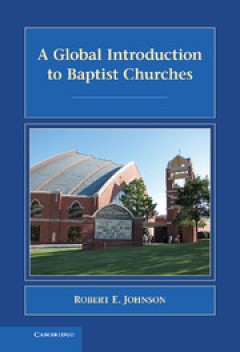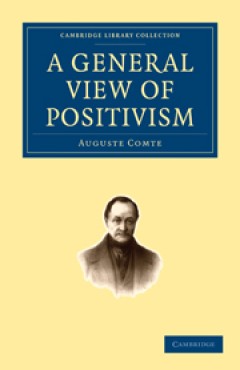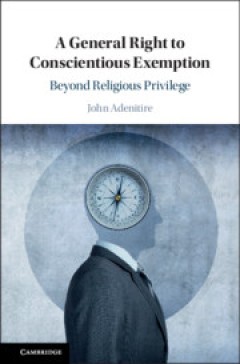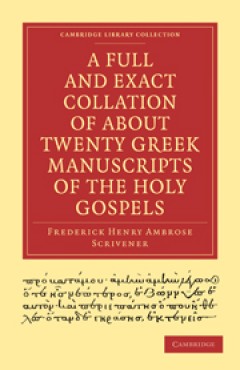Filter by

A Global Introduction to Baptist Churches
Coinciding with the four-hundredth anniversary of the birth of the Baptist movement, this book explores and assesses the cultural sources of Baptist beliefs and practices. Although the movement has been embraced, enriched, and revised by numerous cultural heritages, the Baptist movement has focused on a small group of Anglo exiles in Amsterdam in constructing its history and identity. Robert E.…
- Edition
- -
- ISBN/ISSN
- 9780511781148
- Collation
- -
- Series Title
- Introduction to Religion
- Call Number
- -

A General View of Positivism
In A General View of Positivism French philosopher Auguste Comte (1798–1857) gives an overview of his social philosophy known as Positivism. Comte, credited with coining the term 'sociology' and one of the first to argue for it as a science, is concerned with reform, progress and the problem of social order in society. In this English edition of the work, published in 1865, he addresses the p…
- Edition
- -
- ISBN/ISSN
- 9780511692888
- Collation
- -
- Series Title
- Cambridge Library Collection - Religion
- Call Number
- -

A General Right to Conscientious Exemption
The book argues that there is in the US, Canada and UK, a general right to conscientious exemption available to a person who objects to any legal obligation whatsoever on the basis of a religious or non-religious conscientious belief. The book provides a liberal defence of this right and argues that it should be considered a defining feature of a liberal democracy. A general right to conscienti…
- Edition
- -
- ISBN/ISSN
- 9781108777780
- Collation
- -
- Series Title
- -
- Call Number
- -

A Full and Exact Collation of About Twenty Greek Manuscripts of the Holy Gospels
The first major publication by the distinguished biblical scholar Frederick Henry Scrivener, this is a collation of twenty-three Greek manuscripts of the gospels. The Greek text is preceded by detailed introductory chapters in English, illustrating Scrivener's criteria for selecting the manuscripts, the methods he adopted to edit and collate the texts, and his critique of contemporary biblical …
- Edition
- -
- ISBN/ISSN
- 9780511706677
- Collation
- -
- Series Title
- Cambridge Library Collection - Religion
- Call Number
- -

A Doubter's Doubts about Science and Religion
This 1889 volume was published anonymously and later ascribed to Robert Anderson, a barrister and theological writer who became Assistant Commissioner at Scotland Yard. Mixing his religious beliefs with his detective skills, Anderson argues for true scepticism to be embraced, comparing the tricks played on people by organised religion and science to the scams of confidence tricksters. Writing f…
- Edition
- -
- ISBN/ISSN
- 9780511700811
- Collation
- -
- Series Title
- Cambridge Library Collection - Religion
- Call Number
- -

'Charms', Liturgies, and Secret Rites in Early Medieval England
Since its inception in the nineteenth century, the genre of Anglo-Saxon charms has drawn the attention of many scholars and appealed to enthusiasts of magic, paganism, and popular religion. Their Christian nature has been widely acknowledged in recent years, but their position within mainstream liturgical traditions has not yet been fully recognised. In this book, Ciaran Arthur undertakes a wid…
- Edition
- -
- ISBN/ISSN
- 9781787442887
- Collation
- -
- Series Title
- -
- Call Number
- -
 Computer Science, Information & General Works
Computer Science, Information & General Works  Philosophy & Psychology
Philosophy & Psychology  Religion
Religion  Social Sciences
Social Sciences  Language
Language  Pure Science
Pure Science  Applied Sciences
Applied Sciences  Art & Recreation
Art & Recreation  Literature
Literature  History & Geography
History & Geography